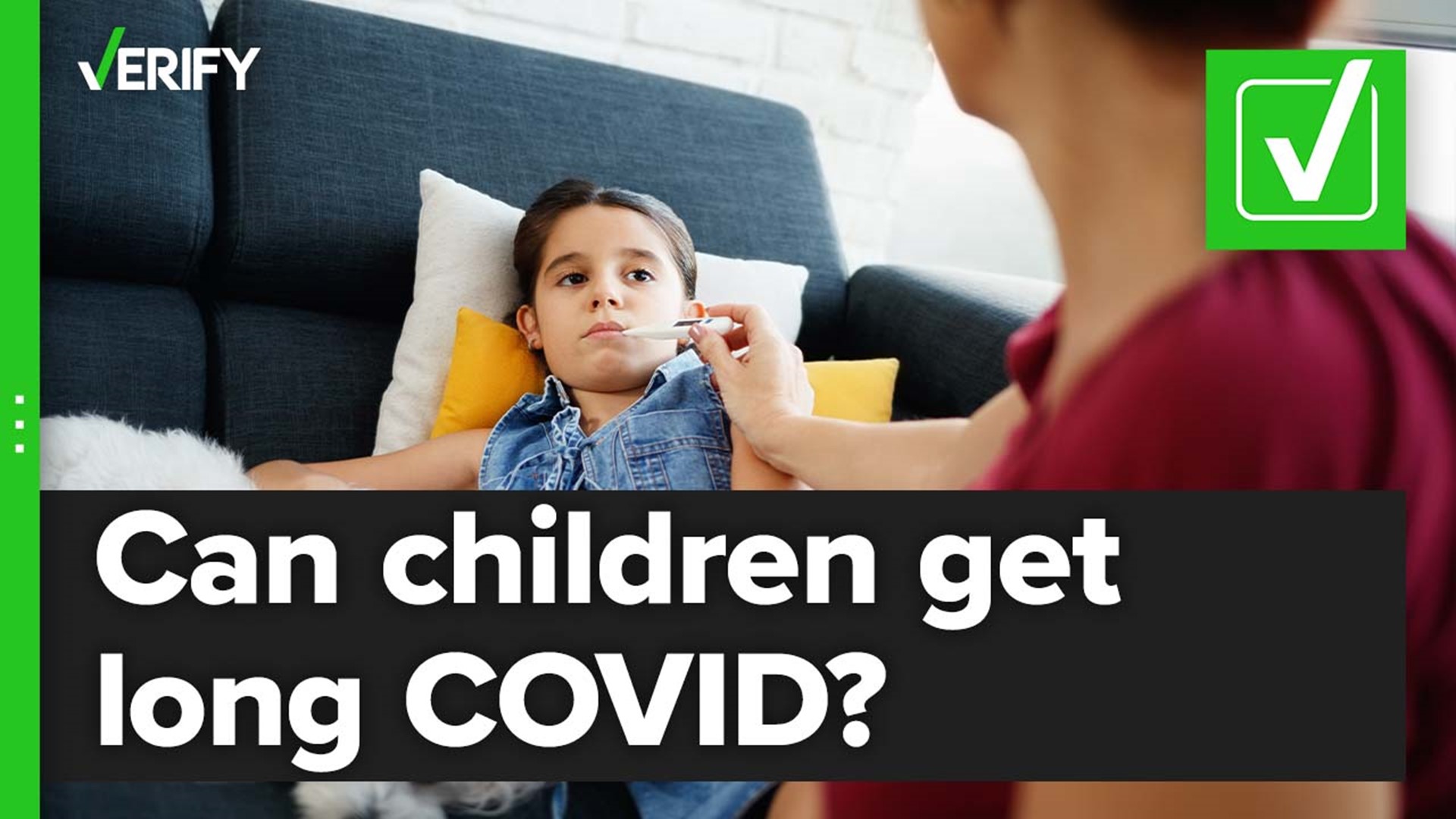Some call it long COVID; others call it post-COVID. Both terms refer to the same thing: symptoms or conditions caused by COVID-19 long after a person has been infected by the virus.
Long COVID symptoms can be the same symptoms people experienced when they were first infected, or they can be totally different symptoms from the original COVID-19 infection. Long COVID happens to some people who get the virus — even people who were asymptomatic when they were first infected.
The omicron variant has made the COVID-19 case rate in the United States surge, particularly in children and adults under 40, according to Centers for Disease Control and Prevention (CDC) data. That has some people concerned about how certain aspects of COVID-19, like long COVID, affect children.
A number of viral social media posts hoping to raise awareness about the complications of long COVID have invited people to share their own experiences with the condition. A few of these stories involve children, a population that typically has more mild illness.
THE QUESTION
Can kids get long COVID, even if they were asymptomatic or had mild cases?
THE SOURCES
- American Academy of Pediatrics (AAP)
- American Academy of Medical Colleges (AAMC)
- Centers for Disease Control and Prevention (CDC)
- Yale Medicine
- Yvonne Maldonado, professor of pediatrics and infectious diseases at Stanford University
- Dr. Lawrence Kleinman, a pediatrician with Rutgers RWJ Medical School
THE ANSWER
Yes, kids can get long COVID, even if they were asymptomatic or had mild cases when they had the virus.
WHAT WE FOUND
The American Academy of Pediatrics (AAP) says children can develop long COVID after their COVID-19 infection, even if they had few or no symptoms. The long COVID conditions in children the AAP lists include: breathing problems, cardiac issues, loss of smell and taste, developmental issues, mental fatigue, physical fatigue, headaches, mental and behavioral health issues and multisystem inflammatory syndrome in children (MIS-C).
“We don't really know the extent to which that happens, because we haven't really had time to follow the pandemic for that long,” Yvonne Maldonado, professor of pediatrics and infectious diseases at Stanford, said of long COVID in kids. “But we do think that up to 20% of children may experience longer-term symptoms.”
The percentage of kids affected by long COVID varies widely across studies. The American Academy of Medical Colleges (AAMC) says research has found the rate to be as low as 2% and as high as 50%.
Maldonado and the AAP agree: A child can be asymptomatic and later suffer from long COVID.
“There are some reports as well, unfortunately, of children who have had longer-term COVID symptoms even when they were asymptomatically infected,” Maldonado said. “So that is they actually didn’t have symptoms of the disease but wound up experiencing longer-term symptoms.”
A prolonged lack of smell and taste is likely the most well-known symptom of long COVID, but long COVID can include many other symptoms. COVID-19 largely affects the respiratory system, and some long haulers — people with long COVID — experience symptoms related to that, including breathing problems, physical fatigue and chest pain. But there are many symptoms of long COVID unrelated to the lungs, such as irregular heartbeat, forgetfulness, concentration issues and problems with sleep.
One particularly severe long COVID symptom is MIS-C, a rare condition in which the Centers for Disease Control and Prevention (CDC) says different body parts become inflamed, including the heart, lungs, kidneys, brain, skin, eyes or digestive organs. The CDC says this inflammation is more common in children than in adults; more than 50 children have died from it and nearly 6,000 children have suffered from it.
Experts don’t know why some children suffer from MIS-C while others don’t, which is true of long COVID in general. Yale Medicine, which runs a pediatric long COVID treatment program, says experts are still trying to figure out what causes long COVID in kids.
“So the long COVID clinics that are springing up are still learning how best to deal with these symptoms,” said Dr. Lawrence Kleinman, a professor in Rutgers’ department of pediatrics. “But they try to address it in an individualized way, to what the needs of each child and family are. So there's not a specific medication or therapy. It's trying to address whatever disabilities exist as a result of the long COVID.”
Long COVID treatment clinics are both new and few in number, but the way doctors at such clinics treat the condition could be replicated at other medical practices.
“The advantage of going to a long COVID clinic is that the doctors are seeing more of it than any given individual,” Kleinman said. “But that doesn't mean that an individual pediatrician or family physician is not capable of managing it. They have to stay up on it, they need to be reaching out and looking out for what the latest information is. So I think there's an advantage if someone has access to one of these clinics, but it's certainly not the only place to get competent care for these conditions.”
Experts across the board say it’s impossible to know what the recovery timeline is for children who suffer from long COVID — and whether some of the symptoms are permanent — because COVID-19 itself has only existed for two years. But Yale Medicine says the kids treated at its clinic are doing well so far, and usually recover faster, within a few months, relative to adults.
More from VERIFY: Yes, you’ll need to make a request to get a free at-home COVID-19 test from the government

